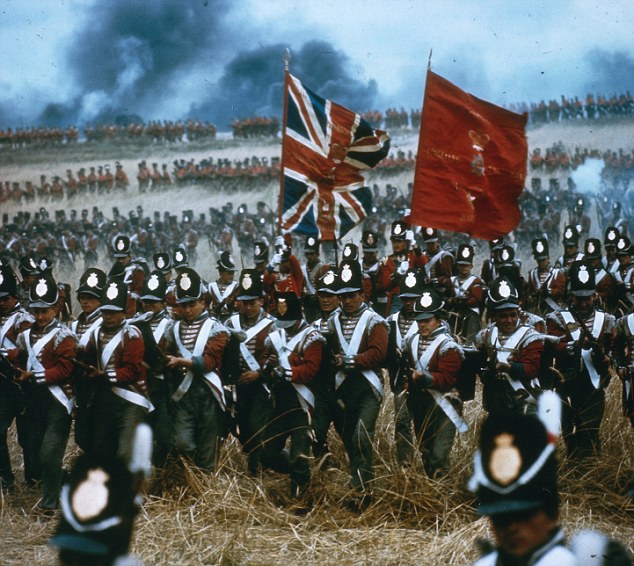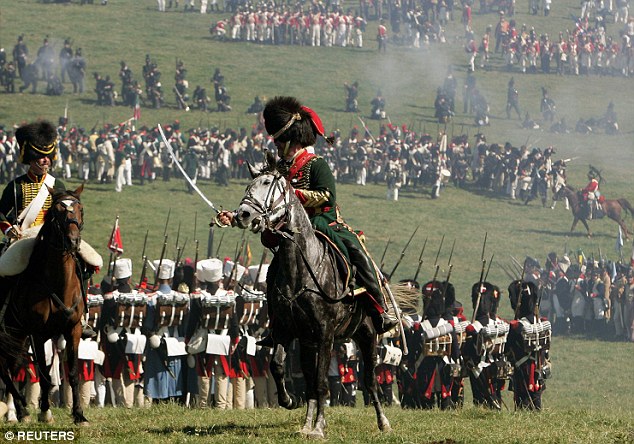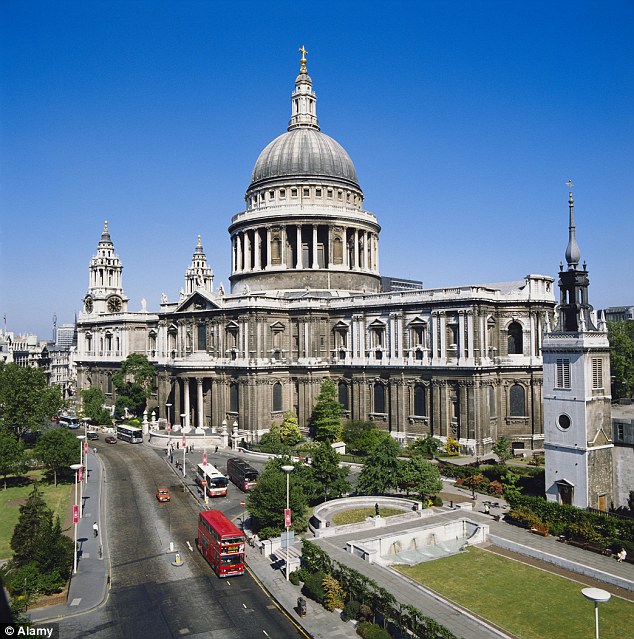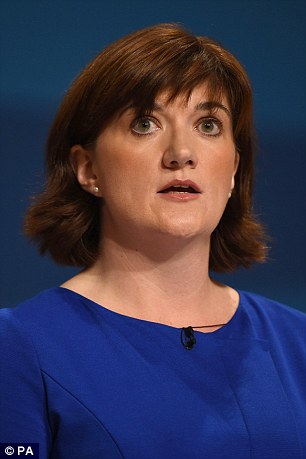Thursday 18th June 2015 marks the 200th anniversary of the Battle of Waterloo, during which the British, Dutch and Germans defeated Old Boney's French forces. The French defeat led to Napoleon's abdication as French emperor, his surrender to the British and his eventual death in British custody on the British island of St Helena in 1821. Peace once again returned to Europe and Britain cemented her place as the world's global superpower.
Now an eminent consortium of academics and military experts are putting together an impressive series of anniversary projects for next year. Events are to take place all over Britain and there will be a service at St Paul's Cathedral. Six thousands re-enactors will re-stage the battle.
And yet, unfortunately, there is a danger that the Left will ruin it. Britain's Left-wing education establishment doesn't want to know and is unwilling to focus on the 18th June 1815 in schools, with one of Education Secretary Nicky Morgan's officials saying she has "no room in her diary" to meet with members of the Waterloo 200 charity.
No doubt if this was about, say, global warming or transgender issues, officials would be falling over themselves to offer advice and outreach programmes. But a landmark in British history? Straight in the bin faster than you can say ‘National Union of Teachers’.
There is a danger that the Left will wreck the 200th anniversary of the Battle of Waterloo in the same way they wrecked the 200th anniversary of the Battle of Trafalgar. Famously, Britain’s grand re-enactment of the battle in 2005 did not involve British or French forces as was originally planned. The re-enactors were forced to call themselves the "blue" fleet and the "red" fleet to avoid "offending" the French. Now there are already reports that next year’s restaging of Waterloo on the actual battlefield, with more than 6,000 re-enactors, will involve a French "win" on one day and an allied victory the next.
ROBERT HARDMAN: You don't have to be a historian to know 1815 is an almighty milestone
June 18 next year will be the 200th anniversary of the Battle of Waterloo
Battle removed Napoleon from stage and helped reshape the world
But educational establishment unwilling to focus on the date in schools
And Education Secretary Nicky Morgan couldn't spare time to hear initiative
By Robert Hardman for the Daily Mail
15 December 2014
Daily Mail
No one paid much attention to the centenary of this titanic struggle. Given that in 1915 all the main parties were preoccupied with the Great War, it was an understandable oversight.
One century further on, and we have no excuse this time. So why is our educational establishment not merely playing down the 200th anniversary of the Battle of Waterloo, but ignoring it altogether?
You do not have to be an old soldier or a historian to regard 1815 as one of history’s almighty milestones.
The removal of Napoleon from the stage helped to redraw the map of Europe and, indeed, the world.

Historical turning point: After her victory over France at the Battle of Waterloo, Britain would go on to consolidate her position as the world's superpower and create the modern world
Not only was there sustained peace after more than 20 years of war, but the British Empire would expand and consolidate its position as the globe’s pre-eminent superpower.
Whether you regard that as a good thing, a mixed result or a downright abomination, it still accounts for the fact that, to this day, most of the world speaks English.
But this was also, emphatically, a multi-national victory; British troops were actually outnumbered by their Dutch and German allies, so much so that Field Marshal Lord Bramall has called Waterloo ‘the first Nato operation’.
An eminent consortium of academics and military experts are now putting together an impressive series of anniversary projects for next year. And this is certainly not some triumphalist dig at the French.
Rather, it is all about teaching future generations to understand the importance of a battle which, as a turning point, was as fundamental as the defeat of Hitler.
And the response of our educational establishment? Sorry, but we’re too busy.

History enthusiasts gathered in in Plancenoit, just south of Brussels, in 2005 to reenact the famous battle on its 190th anniversary
June 18 next year will see St Paul’s Cathedral packed to the rafters. It has been booked by Waterloo 200, the charity dedicated to marking the anniversary.
The great and good will be invited, of course, but so, too, will more than a thousand members of the public, particularly children from any town or village that can unearth a Waterloo connection.
For the main point of the charity is to engage schools all over Britain – and Ireland.
‘We really want to get schools everywhere, particularly state schools, learning about this historical watershed,’ says a spokesman for the charity. While Waterloo 200 boasts some illustrious backers, not to mention the current Duke of Wellington and his family, it has a dedicated educational arm.
A committee of experienced teachers from across the academic spectrum have drawn up a full range of educational tools and resources. And very impressive it is, too.
Some 200 historical items connected to the battle – from swords to medical kits – will be distributed among schools for study and discussion. Special packs for every age range have been designed and will be freely available to any teacher.

June 18 next year will see St Paul’s Cathedral packed to the rafters. It has been booked by Waterloo 200, the charity dedicated to marking the anniversary
As the charity prepares to put all this on a dedicated website, created with support from the Heritage Lottery Fund, the organisers are understandably keen to ensure that schools across the country know about all this freely available material.
Hence their astonishment after writing to the Department for Education to seek a meeting with the Secretary of State, Nicky Morgan, or one of her officials to discuss it all. Back came a short letter saying that Mrs Morgan and her staff had ‘no room in the diary’.
When I call her department, a spokesman refers all questions to the Department for Culture, through which Waterloo 200 received the Lottery support for its website. So there we have it. A great big – and free – educational opportunity is served up on a plate and the commissars in charge of education will not even discuss it.

Next year’s restaging of Waterloo on the actual battlefield is set to feature more than 6,000 re-enactors
No doubt if this was about, say, global warming or transgender issues, officials would be falling over themselves to offer advice and outreach programmes. But a landmark in British history? Straight in the bin faster than you can say ‘National Union of Teachers’.
I just wonder whether Mrs Morgan ever knew about the charity’s request in the first place.
The Waterloo 200 organisers are clearly disappointed. ‘I just hope we can find other ways of ensuring that history teachers know what is available,’ says its chairman, Major General Sir Evelyn Webb-Carter.
Among some historians, there is disbelief. Speaking from Paris, having just received the Grand Prix from France’s Fondation Napoleon for his new biography of the ex-emperor, the historian Andrew Roberts is dumbfounded.
‘This is a magnificent opportunity to educate young people about one of the most important episodes in our history, and yet our educators are not being told about it?’ he asks.

Nicky Morgan and her staff had ‘no room in the diary’ for a meeting with Waterloo 200, the charity dedicated to marking the anniversary. No doubt if this was about, say, global warming or transgender issues, officials would be falling over themselves to offer advice and outreach programmes. But a landmark in British history? Straight in the bin faster than you can say ‘National Union of Teachers’.
Waterloo certainly has some heavyweight backers in the Cabinet, not least the Chancellor. Last year, George Osborne, a keen student of military history, announced that the Treasury would provide £1million toward the renovation of the farm at Hougoumont – a central feature of the entire battle.
The Waterloo 200 organisers are not asking for major funding or even a state occasion. They are doing it themselves. All they want is a little help. This official response surely goes deeper.
Is it not typical of the same pusillanimous mindset that led to the bicentenary commemorations of the Battle of Trafalgar being rewritten to avoid "offending" the French?
Famously, Britain’s grand re-enactment of the battle in 2005 did not involve British or French forces, but a ‘blue’ fleet and a ‘red’ fleet.
There are already reports that next year’s restaging of Waterloo on the actual battlefield, with more than 6,000 re-enactors, will involve a French ‘win’ on one day and an allied victory the next. Not exactly, says organiser, Etienne Claude.
‘One day will focus on the French cavalry and one day will focus on the allied infantry,’ he explains. ‘And a lot of it will be about life among the bivouacs and so on.’
In other words, there will be no great winners or losers – although the Germans are said to be very excited about it.
At long last, they can look forward to a major European military anniversary where they are cast as the good guys.
Now an eminent consortium of academics and military experts are putting together an impressive series of anniversary projects for next year. Events are to take place all over Britain and there will be a service at St Paul's Cathedral. Six thousands re-enactors will re-stage the battle.
And yet, unfortunately, there is a danger that the Left will ruin it. Britain's Left-wing education establishment doesn't want to know and is unwilling to focus on the 18th June 1815 in schools, with one of Education Secretary Nicky Morgan's officials saying she has "no room in her diary" to meet with members of the Waterloo 200 charity.
No doubt if this was about, say, global warming or transgender issues, officials would be falling over themselves to offer advice and outreach programmes. But a landmark in British history? Straight in the bin faster than you can say ‘National Union of Teachers’.
There is a danger that the Left will wreck the 200th anniversary of the Battle of Waterloo in the same way they wrecked the 200th anniversary of the Battle of Trafalgar. Famously, Britain’s grand re-enactment of the battle in 2005 did not involve British or French forces as was originally planned. The re-enactors were forced to call themselves the "blue" fleet and the "red" fleet to avoid "offending" the French. Now there are already reports that next year’s restaging of Waterloo on the actual battlefield, with more than 6,000 re-enactors, will involve a French "win" on one day and an allied victory the next.
ROBERT HARDMAN: You don't have to be a historian to know 1815 is an almighty milestone
June 18 next year will be the 200th anniversary of the Battle of Waterloo
Battle removed Napoleon from stage and helped reshape the world
But educational establishment unwilling to focus on the date in schools
And Education Secretary Nicky Morgan couldn't spare time to hear initiative
By Robert Hardman for the Daily Mail
15 December 2014
Daily Mail
No one paid much attention to the centenary of this titanic struggle. Given that in 1915 all the main parties were preoccupied with the Great War, it was an understandable oversight.
One century further on, and we have no excuse this time. So why is our educational establishment not merely playing down the 200th anniversary of the Battle of Waterloo, but ignoring it altogether?
You do not have to be an old soldier or a historian to regard 1815 as one of history’s almighty milestones.
The removal of Napoleon from the stage helped to redraw the map of Europe and, indeed, the world.

Historical turning point: After her victory over France at the Battle of Waterloo, Britain would go on to consolidate her position as the world's superpower and create the modern world
Not only was there sustained peace after more than 20 years of war, but the British Empire would expand and consolidate its position as the globe’s pre-eminent superpower.
Whether you regard that as a good thing, a mixed result or a downright abomination, it still accounts for the fact that, to this day, most of the world speaks English.
But this was also, emphatically, a multi-national victory; British troops were actually outnumbered by their Dutch and German allies, so much so that Field Marshal Lord Bramall has called Waterloo ‘the first Nato operation’.
An eminent consortium of academics and military experts are now putting together an impressive series of anniversary projects for next year. And this is certainly not some triumphalist dig at the French.
Rather, it is all about teaching future generations to understand the importance of a battle which, as a turning point, was as fundamental as the defeat of Hitler.
And the response of our educational establishment? Sorry, but we’re too busy.

History enthusiasts gathered in in Plancenoit, just south of Brussels, in 2005 to reenact the famous battle on its 190th anniversary
June 18 next year will see St Paul’s Cathedral packed to the rafters. It has been booked by Waterloo 200, the charity dedicated to marking the anniversary.
The great and good will be invited, of course, but so, too, will more than a thousand members of the public, particularly children from any town or village that can unearth a Waterloo connection.
For the main point of the charity is to engage schools all over Britain – and Ireland.
‘We really want to get schools everywhere, particularly state schools, learning about this historical watershed,’ says a spokesman for the charity. While Waterloo 200 boasts some illustrious backers, not to mention the current Duke of Wellington and his family, it has a dedicated educational arm.
A committee of experienced teachers from across the academic spectrum have drawn up a full range of educational tools and resources. And very impressive it is, too.
Some 200 historical items connected to the battle – from swords to medical kits – will be distributed among schools for study and discussion. Special packs for every age range have been designed and will be freely available to any teacher.

June 18 next year will see St Paul’s Cathedral packed to the rafters. It has been booked by Waterloo 200, the charity dedicated to marking the anniversary
As the charity prepares to put all this on a dedicated website, created with support from the Heritage Lottery Fund, the organisers are understandably keen to ensure that schools across the country know about all this freely available material.
Hence their astonishment after writing to the Department for Education to seek a meeting with the Secretary of State, Nicky Morgan, or one of her officials to discuss it all. Back came a short letter saying that Mrs Morgan and her staff had ‘no room in the diary’.
When I call her department, a spokesman refers all questions to the Department for Culture, through which Waterloo 200 received the Lottery support for its website. So there we have it. A great big – and free – educational opportunity is served up on a plate and the commissars in charge of education will not even discuss it.

Next year’s restaging of Waterloo on the actual battlefield is set to feature more than 6,000 re-enactors
No doubt if this was about, say, global warming or transgender issues, officials would be falling over themselves to offer advice and outreach programmes. But a landmark in British history? Straight in the bin faster than you can say ‘National Union of Teachers’.
I just wonder whether Mrs Morgan ever knew about the charity’s request in the first place.
The Waterloo 200 organisers are clearly disappointed. ‘I just hope we can find other ways of ensuring that history teachers know what is available,’ says its chairman, Major General Sir Evelyn Webb-Carter.
Among some historians, there is disbelief. Speaking from Paris, having just received the Grand Prix from France’s Fondation Napoleon for his new biography of the ex-emperor, the historian Andrew Roberts is dumbfounded.
‘This is a magnificent opportunity to educate young people about one of the most important episodes in our history, and yet our educators are not being told about it?’ he asks.

Nicky Morgan and her staff had ‘no room in the diary’ for a meeting with Waterloo 200, the charity dedicated to marking the anniversary. No doubt if this was about, say, global warming or transgender issues, officials would be falling over themselves to offer advice and outreach programmes. But a landmark in British history? Straight in the bin faster than you can say ‘National Union of Teachers’.
Waterloo certainly has some heavyweight backers in the Cabinet, not least the Chancellor. Last year, George Osborne, a keen student of military history, announced that the Treasury would provide £1million toward the renovation of the farm at Hougoumont – a central feature of the entire battle.
The Waterloo 200 organisers are not asking for major funding or even a state occasion. They are doing it themselves. All they want is a little help. This official response surely goes deeper.
Is it not typical of the same pusillanimous mindset that led to the bicentenary commemorations of the Battle of Trafalgar being rewritten to avoid "offending" the French?
Famously, Britain’s grand re-enactment of the battle in 2005 did not involve British or French forces, but a ‘blue’ fleet and a ‘red’ fleet.
There are already reports that next year’s restaging of Waterloo on the actual battlefield, with more than 6,000 re-enactors, will involve a French ‘win’ on one day and an allied victory the next. Not exactly, says organiser, Etienne Claude.
‘One day will focus on the French cavalry and one day will focus on the allied infantry,’ he explains. ‘And a lot of it will be about life among the bivouacs and so on.’
In other words, there will be no great winners or losers – although the Germans are said to be very excited about it.
At long last, they can look forward to a major European military anniversary where they are cast as the good guys.
Last edited:



